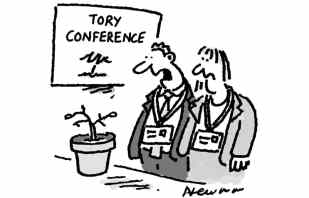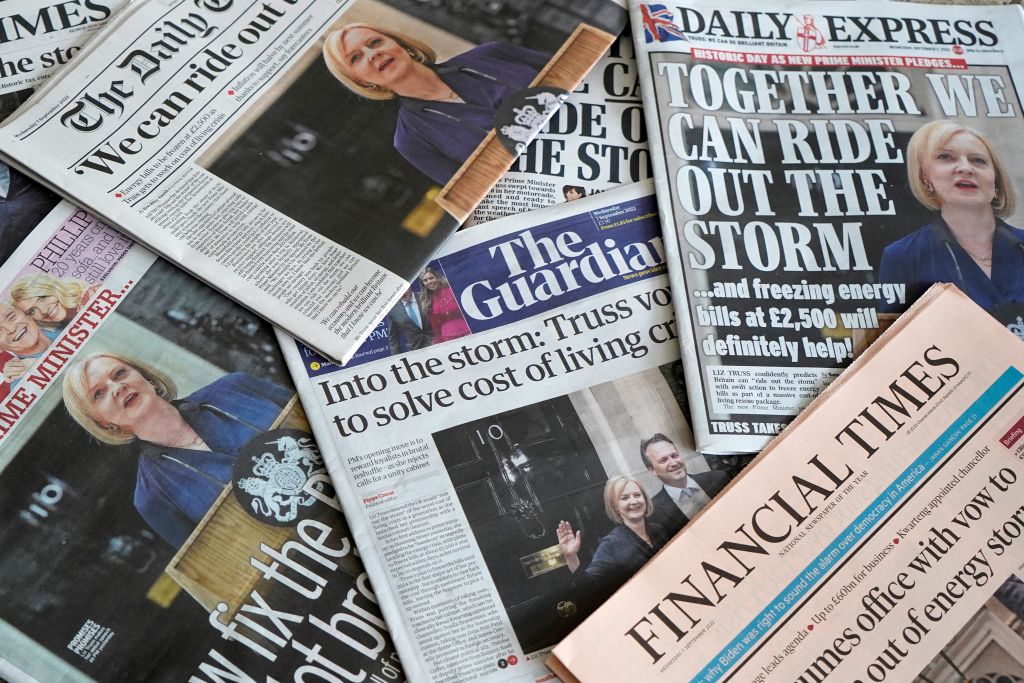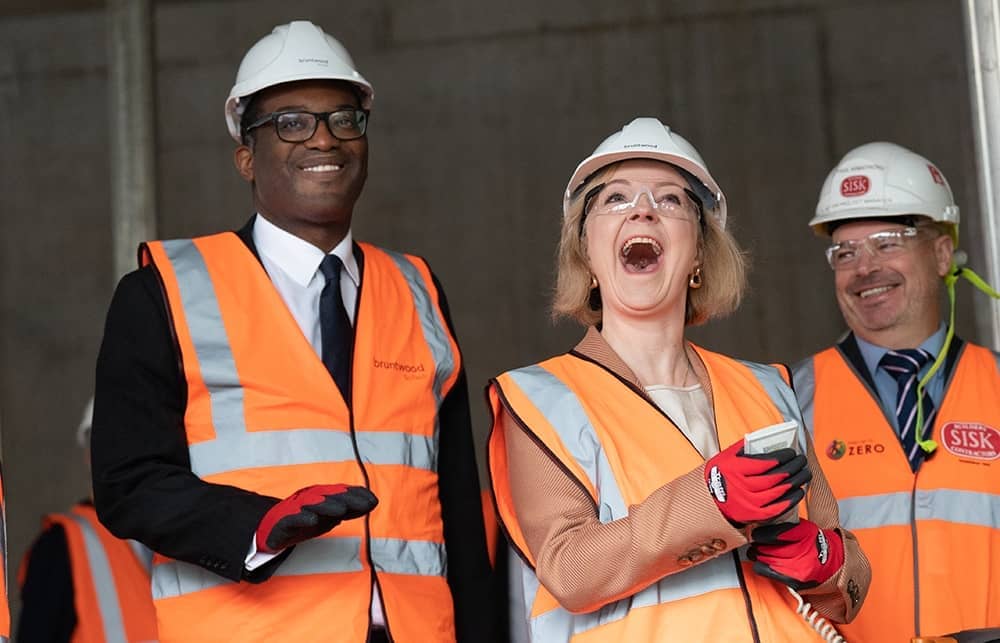In theory, I should be delighted about the Liz Truss project. She is saying the things I’ve been arguing for years: talking not just about lower taxes but about basic liberty and how it relates to everyday life. She’s passionate about these ideas – and sincere. I remember watching her deliver a rallying cry, a salute to the ‘Airbnb-ing, Deliveroo-eating, Uber-riding freedom fighters’. This was just over three years ago when she was a Treasury minister. Her speeches were getting punchier and her one-liners becoming newsworthy and memorable. She was turning into one of the most recognisable faces of classical liberalism in Britain – a development which clearly delighted her.
Truss asked for this job. I don’t mean the job of party leader and prime minister – though she asked for that too. I mean the job of the UK’s free-market revolutionary. It’s too early to say with confidence where it all went wrong, but I suspect it can be traced back to problems with her changing ideology even before she was elected leader.
My worries about a Truss premiership started during the leadership race, when it became clear that fiscal discipline was not going to play a role in her campaign. She wanted tax cuts and wouldn’t wait. Far from cutting down the ‘magic money tree’, she seemed keen to water it. My concern at the time was that fiscal responsibility would slowly die; instead, we seem to have witnessed a sudden fiscal explosion that may yet take the free-market movement down with it.

Free-market arguments can be tricky to make, because they’re often counterintuitive. Lower tax rates, for example, can actually increase the tax take. Using the private sector can often deliver better, more extensive coverage for what we consider to be ‘public services’. Tolerating the rich can be the price you pay for helping the poor. These are ideas easily caricatured by the left as voodoo economics, or just outright venality – which makes it all the more important that they are explained and implemented thoughtfully. A war of words is a certainty, and anyone fighting that war needs to be ready, as Margaret Thatcher understood.
It is no coincidence that the most successful reformers of the past half-century were well versed in how to argue and how to win people over. Thatcher carried Friedrich Hayek’s The Constitution of Liberty around in her handbag. Ronald Reagan became a pupil of Washington DC’s Heritage Foundation thinktank, which helped to guide his successful privatisations and tax reform.
Truss, at one stage, seemed to follow this example. Her close relationship with the UK thinktanks over the past decade not only saw her engage with the ideas, but also write free-market public policy proposals under her own name. But she was always preaching to the converted. To be in the arena, to explain that ‘trickle-down economics’ doesn’t exist and never has – this is a necessary condition for any successful reform.
They say power corrupts. I think perhaps it gives you amnesia, because there was a time, not too long ago, when Truss was well versed in free-market policy and seemed to understand economic reality – that the markets don’t respond like an audience at Tory conference. Markets need – we all need – to know that there is a plan. For her to blame the caustic market reaction to her borrow-and-spend mini-Budget on left-wing whingeing is simply to be in denial.

This fiscal explosion may yet take the free-market movement down with it
Only four weeks in, her premiership risks causing serious damage to the free-market cause. After the humiliating reversal over the abolition of the 45p tax rate, proper tax reform may now be off the table completely. Policies started dying – or rather, being killed off – even before she was elected leader. The decision to rush out plans for regional pay boards during the leadership race – and U-turn on it hours later – delayed necessary discussions of performance-related pay in the public sector for at least a decade. What decent but sloppily implemented policy will be axed next? At this rate, Truss will leave office with the country convinced that we actually have an over-supply of homes, with plans in place to bulldoze a few.
This is all a fatal combination of miscalculation and hubris. Truss and her Chancellor Kwasi Kwarteng clearly thought the markets would speak their language and fund their tax cuts. They thought their confrontational attitude towards the UK’s financial institutions would go down a treat. They were wrong on both counts – but these were bad assumptions. Having spent my twenties working tirelessly to promote the nuances of free-enterprise, growth-maximising policies, I am horrified and infuriated to see the words ‘Growth Plan’ plastered across a economic plan that paid less lip service to fiscal discipline than a Gordon Brown Budget.
Some on the left have the audacity to claim that ‘real’ socialism has never been tried. They insist that a socialist utopia could still be achieved if only it was done in the right way. Starvation and gulags only spring up, they say, because the process goes awry. Free-marketeers like to point out the absurdities in this argument: that the inputs of socialism (a heavy-handed state, brute force) guarantee its ugly outputs. But should we not be more aware of our own vulnerabilities? So far, the Truss agenda is one massive spending spree, yet it’s being talked about as if it were some radical experiment in small-state liberalism.
What will the Truss administration say if her agenda doesn’t go according to plan? That ‘real’ Trussonomics has never been tried? It won’t wash, and it shouldn’t. For the sake of the philosophy she purports to believe, and the country she represents, she needs to get her agenda back on track.







Comments